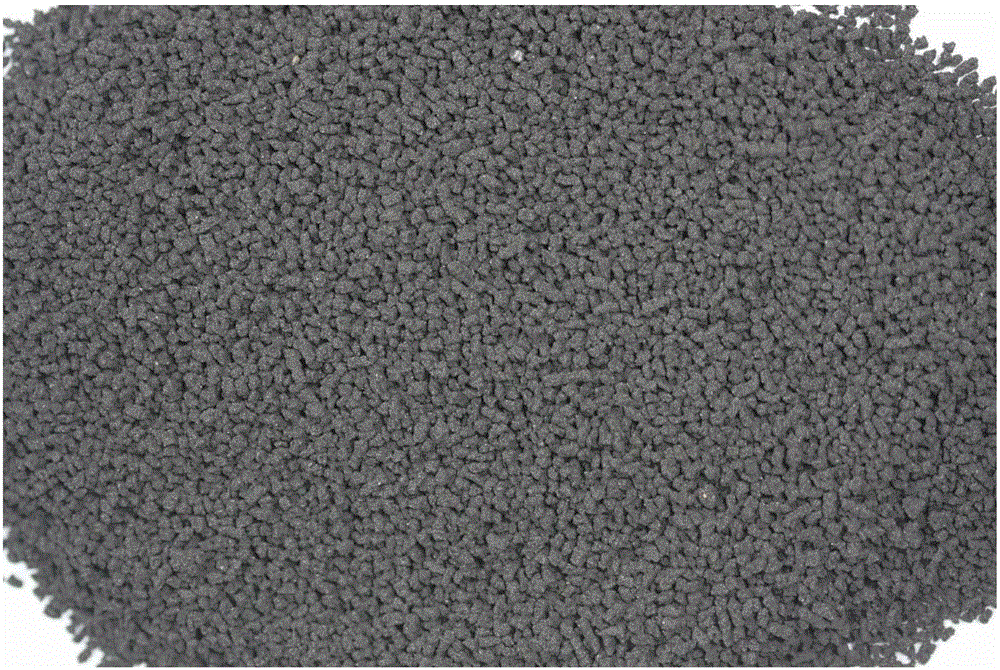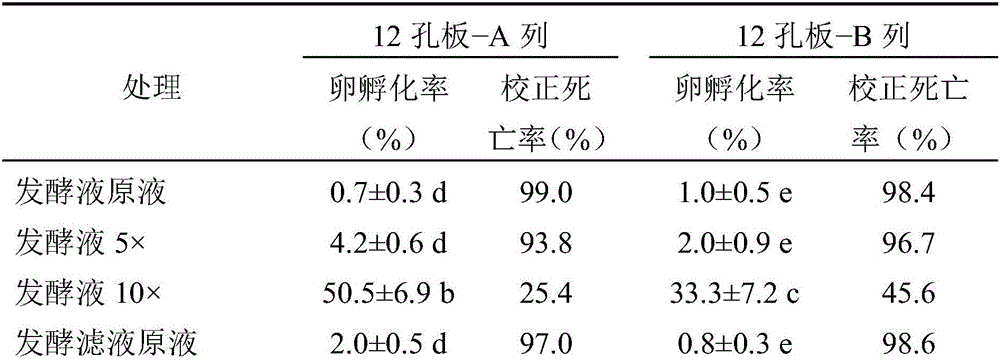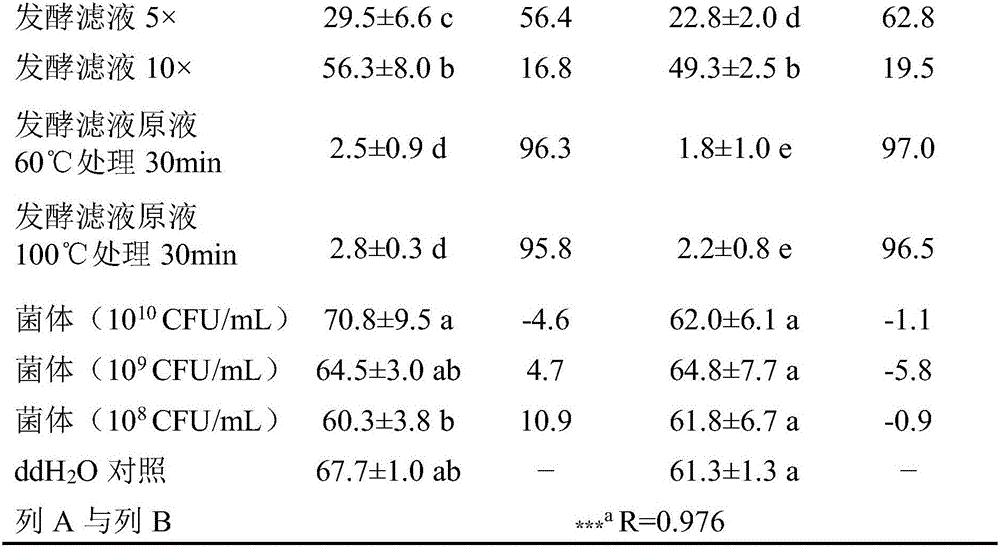Ochrobactrum pseudogrignonense and applications of Ochrobactrum pseudogrignonense in prevention and control of plant parasitic nematodes
A pale bacillus and nematode technology is applied to pseudogrignon bacillus and its application field in controlling plant parasitic nematodes, and achieves the effects of good application and development prospects, remarkable nematicide effect and stable effect.
- Summary
- Abstract
- Description
- Claims
- Application Information
AI Technical Summary
Problems solved by technology
Method used
Image
Examples
Embodiment 1
[0025] Example 1. Isolation, purification, identification and preservation of O.pseudogrignonense NC1
[0026] The Pseudomonas pallidum NC1 of the present invention is isolated from the rhizosphere soil of a healthy tomato plant in a vegetable field in Hongyuzhuang, Tongjing Town, Yinan County, Shandong Province. Put the fresh tomato root system into the car refrigerator for temporary storage, and rinse it with sterile water for 3-5 minutes after taking it back to the laboratory to remove the root soil, then cut the root system into 1cm root segments, transfer them to the homogenizer, and add 100mL of sterile water, crushed for 2min, the root crushed solution was serially diluted and evenly spread on the NA medium (beef extract 3.0g, peptone 5.0g, glucose 2.5g, agar 18.0g, sterile water to 1L, pH 7.0), and cultured upside down at 28°C for 48 hours. After a single colony grew, pick it on a fresh NA medium with a sterile toothpick for isolation and purification. The strain obtai...
Embodiment 2
[0030] Example 2. Evaluation of Nematicidal Activity of O.pseudogrignonense NC1
[0031] 1. Culture of plate strains
[0032] The Pseudogrignon pallidum NC1 screened in the above Example 1 was transferred from the slant of the test tube to the NA medium, and cultured at 28° C. for 48 hours to obtain plate strains.
[0033] 2. Liquid fermentation culture
[0034] The components and mass percentages of the liquid fermentation medium are: 0.35% glucose, 1% tryptone, 0.45% yeast powder, preferably 1% sodium chloride, dilute to 1L with water, and the stated percentages are all mass percentages , the pH is preferably 7.0.
[0035] Inoculate the plate bacteria obtained in the above step 1 into a 250mL Erlenmeyer flask filled with 30mL of liquid medium, and culture at 28°C for 12h at 180rpm / min to obtain a seed solution. Then insert the seed solution into 200mL culture medium according to the inoculum amount of 2%, cultivate it for 48h to obtain the fermentation solution, dilute it...
Embodiment 3
[0057] Example 3, Evaluation of the Control Efficacy of Pseudogrignonense Paleobacterium (O.pseudogrignonense) NC1 Biocontrol Microbial Agents on Meloidogyne incognita (M.incognita)
[0058] 1. Preparation of Pseudogrignon Paleobacterium NC1 biocontrol microbial agent used in the present embodiment
[0059] (A) Fermentation and culture of Pseudogrignon pallidum NC1, the medium formula and fermentation conditions are the same as step 2 in Example 2.
[0060] The culture was centrifuged to obtain concentrated fermented liquid, the centrifugation speed was 5000rpm / min, and the centrifugation time was 20min.
[0061] (B) adding 0.5-1% sodium alginate (W / V) and 0.5-1% (W / V) chitosan to the concentrated fermented liquid;
[0062] (C) Fully mix the mixed carrier of the bacterium liquid and peat soil and bentonite, the mass ratio of peat soil and bentonite is 9-9.5:0.5-1, and obtain a solid; the mixed carrier of the bacterium liquid and the peat soil and bentonite The weight ratio is ...
PUM
 Login to View More
Login to View More Abstract
Description
Claims
Application Information
 Login to View More
Login to View More - R&D
- Intellectual Property
- Life Sciences
- Materials
- Tech Scout
- Unparalleled Data Quality
- Higher Quality Content
- 60% Fewer Hallucinations
Browse by: Latest US Patents, China's latest patents, Technical Efficacy Thesaurus, Application Domain, Technology Topic, Popular Technical Reports.
© 2025 PatSnap. All rights reserved.Legal|Privacy policy|Modern Slavery Act Transparency Statement|Sitemap|About US| Contact US: help@patsnap.com



